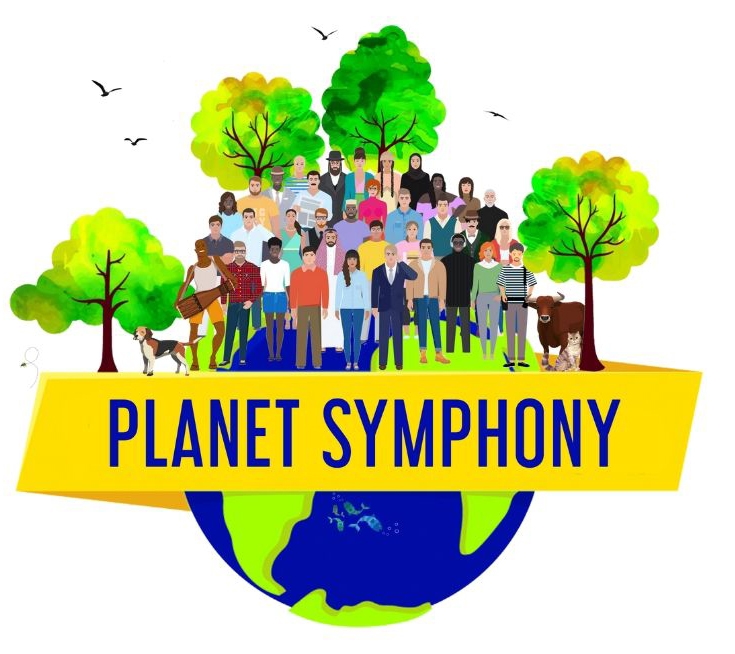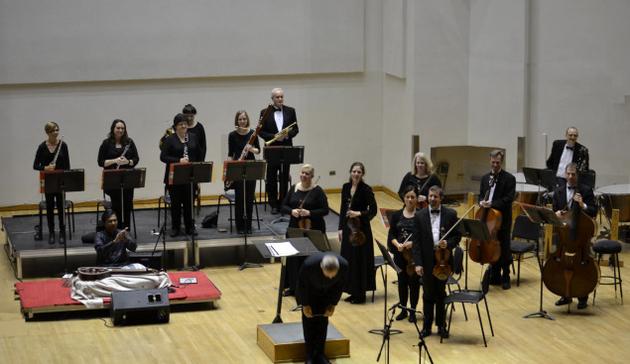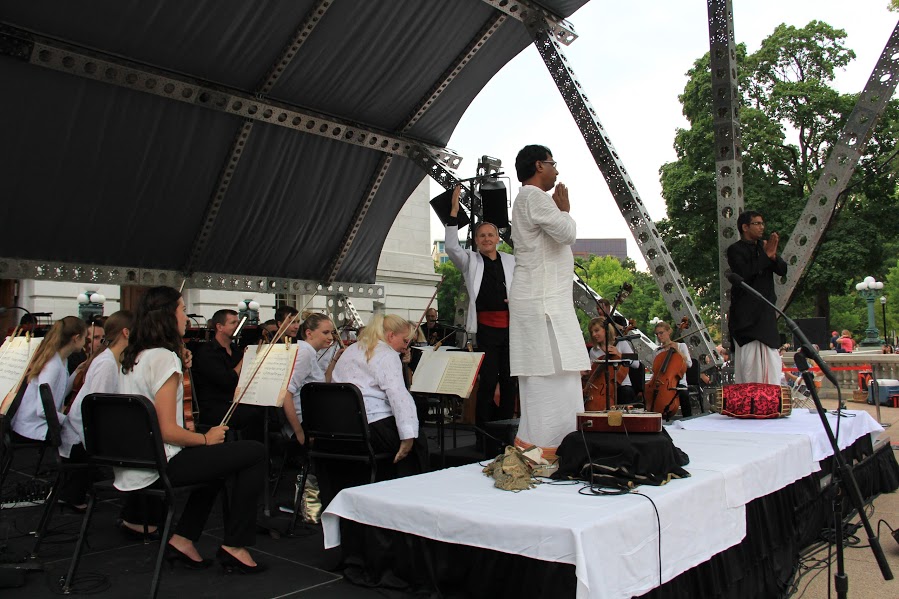Musical blend of East and West
The Hindu: Friday, December 08, 2000
DECEMBER 1999 – this was the month when a Bradford based performing arts company, Kala Sangam, approached the South Indian chitraveena maestro and composer N. Ravikiran for a show. The programme, stylishly called `Global Echoes’, was aided by the Millennium Grants Commission (U.K.). It focussed on bringing the eastern and western artistes together. The West was to be represented by musicians of the renowned BBC Philharmonic Orchestra. They were Julian Gregory, Peter Wilmott, Francis Pye and Matthew Compton on diverse instruments and the east by our very own team – Ravikiran on his Chitraveena, T. H. Subash Chandran on the ghatam and Sukhvinder Singh Namdari on the tabla.
This concept mooted by Kala Sangam was certainly exciting but not new to Ravikiran. He was very much at home with fusion having performed earlier with other renowned artistes like Taj Mahal, Glen Valez, Martin Simpson and many others. The programme was launched in the U.K. on October 5 and press reports confirm that it has been adjudged one of the best five out of nearly 2,000 shows. Certainly a stupendous achievement! However, let us start at the very beginning of this exciting story. Ravikiran himself gives us a peek into the making of his creation, Melharmony.
“It is true that I have played many fusion concerts earlier. However, I have to admit that I was never fully satisfied with them and there is a valid reason for this. The very nature of those programmes was heterogeneous. They were different items mixed together. Those experiments were certainly very musical but I would not say that it was a composite musical piece. A homogeneous blend was what I aimed for when I got this offer.”
The creeping in of alien notes when western chords were used to match indigenous raga phrases disturbed Ravikiran. “Ours is the most complete melodic system in the world. In spite of so many artistes including myself performing frequently abroad, I find that western classicists have the opinion that only their music is classical. Look at the Grammy Awards function and you will agree with me. We get awards only in the category of world music, fusion, jazz and the like. The uniqueness of our korvais, systematic building up of `sangathis’ (musical phrases) or even the literary merits of our great composers are neither understood nor appreciated,” he said. Ravikiran therefore viewed Global Echoes as a God-sent opportunity to demonstrate to the world the glory of Carnatic music.
“I christened it so because I thought it was `catchy’. Also it is apt because it is harmony created around melody. I should confess that the BBC artistes were apprehensive about this combination. I was given to understand that they had never worked with Asian artistes before. All the artistes along with the `Kala Sangam’ organisers met for the first time at the BBC studios in Manchester and I should say that within the first half-hour of our meeting all their apprehensions were totally dispelled and the very next day we had the first rehearsal.”
The entire concert was spread into three parts of approximately half-hour duration each. In the first two sections, the western and eastern artistes played their pieces individually. It was the third section consisting of four items that was the grand finale. The penultimate score was also the central piece that put Ravikiran’s Melharmony on world map.
“The first joint piece was a new composition called the Dasha Tala roughly signifying a `ten-beat composition.’ The BBC artistes composed this and it is interesting that they tried to bring in Carnatic aspects like serious rhythm. This was followed by Thyagaraja’s composition `Shobillu Saptaswara’. I introduced the saint as the Mozart of Indian music. The western artistes are not fully aware of the fact that classical Indian music does have organised compositions. Probably this impression has been created because of predominant exposure to Hindustani music, which focusses more on improvisations. Anyway I played and recorded the song for them. They on their part translated it down into staff notation. The melodic flow of this composition was much appreciated and I should say they rose very creditably to the challenge of playing our complicated gamakas. Subsequently it was our turn to play to a western beat and the composition was the classic `Summertime’ by George Gershwin. On the whole this was really a fifty-fifty partnership.”
However the piece de resistance was the score titled the `KK suite’. This was a real crest jewel. An abbreviation for the two classical melakarta ragas – Kalyani and Karaharapriya – this fusion seems to have been a great success judged by even the yardstick of the grammar of Carnatic music.
“I should say that I was almost 75 per cent successful in preventing the intrusion of foreign notes into these ragas during the fusion. Initially I played Kalyani in a manner broadly comparable to our Ragam Tanam Pallavi. The BBC artistes fared admirably. The highlight was the endings for each of their solo improvisations”.
These two sections were linked by a fiery percussion duet by Subhas Chandran on his ghatam and konnakol and Sukwinder Singh on the tabla. The audience apparently reacted with appreciative disbelief that complex rhythmic patterns could be played on an extremely fundamental instrument like the earthen pot. However, it was the konnakol reciting of Subhash Chandran that left the audience gasping with amazement. This combined with the wizardry of Sukwinder resulted in a standing ovation.
The group performed in London, Bradford, Newcastle and Manchester. The last was in the BBC studio itself for an invited audience. Ravikiran is due to visit London again for an encore on December 12.
Can this novel show be organised for his home audience? “Definitely, provided we get adequate sponsors,” is Ravikiran’s candid reply.
Closing on a touching note, this prodigy says, “It is true that I have won many awards and created a niche for myself in the world of music. But I owe all this primarily to one person and that is my father and guru Chitravina Shri Narasimhan. Please do not forget to mention him.”


